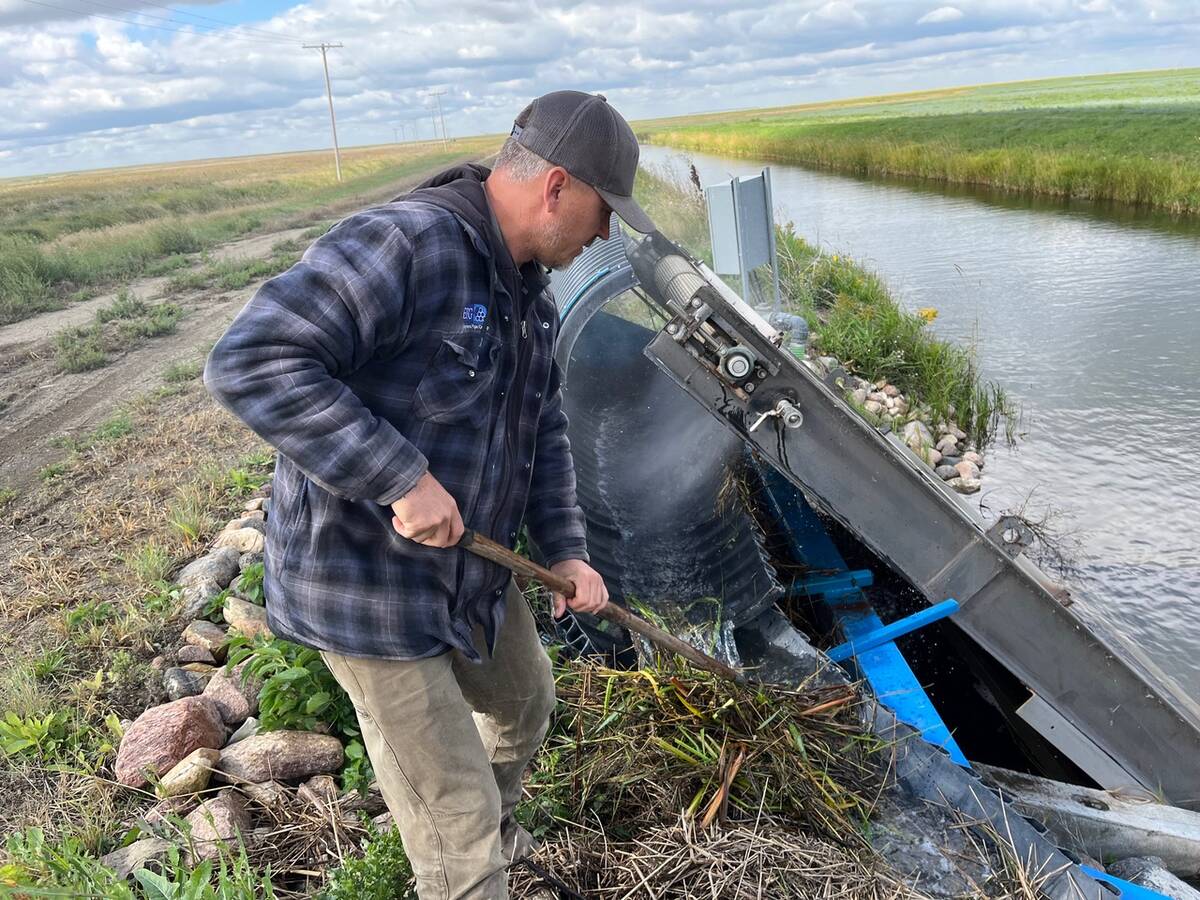Manitoba’s newest beef processor opened its doors in Winnipeg last week.
If things go according to plan, Keystone Processors could be slaughtering 250 to 500 cattle per day by 2011 in a federally inspected plant.
On March 10, the company celebrated the first shipment of beef out of its St. Boniface facility, which was formerly a Maple Leaf pork plant.
“It’s a lot of work to take an older plant designed for hogs and turn it into a state of the art facility for beef,” said company president Kelly Penner in a news release announcing the official opening.
Read Also

Saskatchewan farmer uses tile drainage to manage water
The integration of both irrigation and tile drainage results in higher yields, water efficiency, improved soils and less nutrient runoff, says one producer.
Keystone is a joint venture of Natural Prairie Beef, a producer owned company, and the Manitoba Cattle Enhancement Council (MCEC), which has a mandate to build slaughter capacity in the province.
The opening marks the completion of phase one of the plant’s conversion. For now, Keystone’s 12 employees will process sides of beef from slaughter plants in Manitoba and sell cuts of meat to restaurants and retail stores primarily in Winnipeg.
The company’s long-term plan is to eventually have its own slaughter facility for Manitoba cattle.
“That’s a couple of years away,” said Penner, who raises cattle near Douglas, Man.
“Our interim plan is to get the processing line up and running. Start marketing, training and we’ve still got a pile of money to raise.”
The cost of completely renovating the former Maple Leaf plant is estimated at $25 million. So far, the MCEC, which is funded by a $2 per head producer checkoff and matching provincial government funds, has committed $2.4 million to the project.
Penner is also lobbying the federal government for a piece of the $50 million promised for slaughter expansion in January’s federal budget.
However, until the money is raised and the renovations are completed, Keystone Processors will focus on developing markets for its boxed beef.
The company is restricted to selling within the province because it is not yet a federally inspected plant. However, it eventually hopes to tap into niche markets such as kosher and halal meat in North America.
Although the plant’s current activity is not going to drastically alter Manitoba’s cattle market, Keystone Processors could have a big impact in the future, said Manitoba Cattle Producers Association president Joe Bouchard.
“If they could go up to 500 head a day, you’re looking at a quarter to a third of the herd in Manitoba,” he said.
“They are just starting out and the packing business is a tough business … but it’s a move in the right direction, that’s for sure.”
Meanwhile, a group in the Swan River Valley is also hoping to add to Manitoba’s cattle slaughter capacity.
The seven municipalities in the valley have committed to fund a waste burner, which would pave the way for the expansion of a small plant in Swan River so it could slaughter 80 to120 head per day.
“All the seven municipalities are in support of it,” said Richard Barteski, a deputy reeve for the RM of Swan River, noting local governments have promised to fund $130,000 of the $1.3 million cost of the burner.
The next step, Barteski said, is to continue conversations with the provincial government to acquire funding help for the project.

















